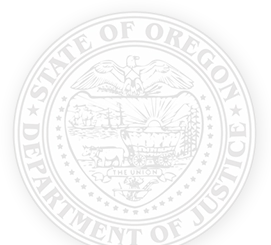Task Force Calls for More Officer Training and Better Data Collection
After 18 months of deliberation, Oregon Attorney General Ellen Rosenblum, chair of the Law Enforcement Profiling Task Force, today joined task force members to unveil legislation for the upcoming 2017 Oregon legislative session. The draft legislation would expand officer education and training to include profiling prevention and understanding and overcoming implicit bias. In addition, the proposed legislation would set up a statewide process to collect traffic and pedestrian stop data, and improve police accountability by requiring the collection and publication of the data. Publication will help policy makers and the public to better understand the nature of interactions between law enforcement and Oregonians and will help address any evidence of bias.
The full legislative concept can be found here.
“I’m very proud of the work done by this task force, both by its individual members and as a group,” said Attorney General Rosenblum. “We need to make sure both our new and veteran law enforcement officers have appropriate training and education around profiling prevention. This includes training to recognize and overcome our implicit biases. We also need to make sure we have an appropriate process to collect better data on policing, and to keep that process publicly accountable. I believe our proposed legislation reflects the best of the national discussion on state legislative solutions to address the problem of profiling.”
The draft legislation also includes a strong statement that Oregon’s drug sentencing laws need to be reformed. Members of the task force, including law enforcement, the ACLU of Oregon, and defense attorneys, will continue to work on expanding the proposal, which has as its goal to minimize the consequences to non-criminal drug users.
The task force was established in 2015 by House Bill 2002 to help eliminate the practice of law enforcement profiling. In December, 2015 the task force delivered seven recommendations to the Oregon legislature on ways to better detect and combat law enforcement profiling. In the report, the task force also asked the Oregon legislature to extend the task force until 2017 to further develop legislative concepts.
Under HB 2002, the law defines profiling as law enforcement targeting of a person on suspicion of violating a provision of law based solely on the real or perceived factor of a person’s age, race, ethnicity, color, national origin, language, gender, gender identity, sexual orientation, political affiliation, religion, homelessness or disability.
“Police profiling is toxic to our communities—especially people of color, immigrants and refugees, and LGBTQ people—who are physically abused and incarcerated at higher rates,” said task force member Kayse Jama, Executive Director of Unite Oregon. “Profiling also creates distrust that makes the jobs of law enforcement less safe and more difficult. Today, we are proposing training, resources, and accountability needed to put an end to police profiling here in Oregon. Even after this legislation is passed, we will continue our efforts to ensure that the data collected is used to improve community safety while law enforcement who engage in profiling are held accountable for their actions.”
“Oregon Sheriffs and Chiefs remain committed to providing fair, just and equitable policing to all Oregon communities,” said task force member Jason Myers, Marion County Sheriff.
Contact:
Kristina Edmunson, Department of Justice, Kristina.Edmunson@doj.oregon.gov, 503-378-6002
